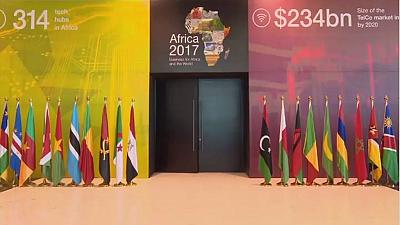
Africa has often been described as the last frontier for growth. According to estimates by the United Nations, about 2.2 billion people will be added to the global population by the year 2050 and more than half of that growth will occur in the African continent.
But are African governments ready for this challenge? This is among the key issue that was discussed and experts sought to answer in the 2017 Business for Africa and the World forum that was held in Sharm El Sheikh, Egypt.
Now in its second edition, the three-day forum which was held on 7-9 December, convened political leaders, captains of industry as well as entrepreneurs drawn from across the African continent.
Top on the agenda was fostering regional economic integration, youth and women economic empowerment as well as achieving all inclusive economic growth.
“We’ve taken off, we took of slowly because the external environment was in a difficult place. Growth is now sort of renewing where Africa will be growing at 3.2-3.5 percent. It’s not where we want to be… We need to ensure that the growth is inclusive which means we need to bring everybody along and I think this is a very important part of the Sustainable Development Goals that the Secretary General of the UN makes it his mantra to say we don’t want to leave anyone behind,” said Vera Songwe, Executive Secretary of the UN Economic Commission for Africa (UNECA).
Most resource-dependent economies in Africa have suffered global shocks as a result of subdued commodity prices and despite the up tick in global oil prices, these economies are still yet to fully recover. Thus the need for economic diversification was stressed by thought leaders.
For Ibukun Awosika, an entrepreneur and the first female chairman of the First Bank of Nigeria, Africa is making strides and the move to diversify resource dependent economies is a step towards the right direction.
“The most interesting thing is that there’s a lot of inductive effect across the continent. Something great is happening in Kenya you’ll see in Nigeria or Ghana. Something great in Nigeria you’ll see in South Africa or Ghana. Other countries trying to do the same. So we need to do that because we see value in each other and help each other and we must be able to trade across the continent,” she added.
China which has become Africa’s first trading partner was not left out of the conversation. It has a total of about $66.4 billion in 293 Foreign Direct Investment (FDI) projects which are well diversified across various sectors in Africa.
“For the last few years our strategy has been shaping up around the idea of industrialisation and structural transformation of economies. This is something that is a perfect match in terms of interest. Between the interests of Africa and the interests of China,” said Carlos Lopes, former Executive Secretary of UNECA.
The general consensus was that Africa is on the move and and the continent must leverage on its strengths which includes its large and youthful population to ensure that Africa maintains its economic growth momentum.
During the event, Egypt also has signed a deal with the World Bank for a USD $1.15 billion development policy loan to fund the government’s plan to boost economy. It is the last one in a series of three annual loans provided from 2015 to 2017 totalling USD 3.15 billion.
Organised by Egypt’s Ministry of Investment and International Cooperation and the COMESA Regional Investment Agency (RIA), the forum saw over 2,000 delegates from 75 countries attend.
Written for www.africannews.com by Claire Muthinji, 14/12/2017
Edited by Amy Smith (NIAS)
